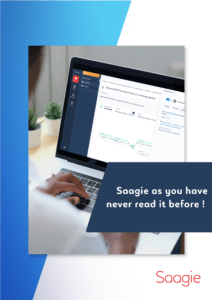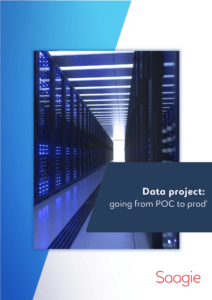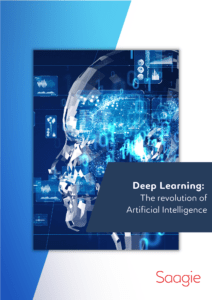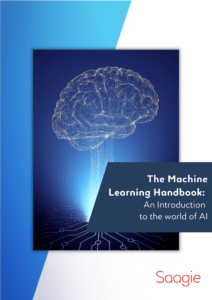Foncia is the European leader in residential services, the number one property manager and the number one rental company in France. The company’s ambition is to be recognized for its quality of service and for the development of innovative services.
Foncia’s main activity, property management, is divided into two business lines, condominium management (syndic business) and rental management where clients are both landlords who wish to rent out their property (Foncia is therefore involved in the rental and day-to-day management of these properties) and tenants for whom Foncia creates the interface with their landlords.
With 500 agencies throughout France, Foncia is present as close as possible to the French people throughout the country.
Could you explain your mission at Foncia?
Philippe Salle’s ambition when he took over as chairman of the group in 2017 was to transform a company with a rich history and solid fundamentals into a technology company focused on its customers. He wanted to modernize the property administration professions, starting by digitizing all of our activities. Consequently, a new ERP (integrated management software package or ERP in English) was created at Foncia. This ERP was completely created and designed by Foncia’s Innovation Department and is being rolled out nationally. This is a real opportunity to centralize data and make it more accessible, allowing it to be used to the maximum.
It is in this context that I arrived at Foncia in November 2020 as Chief Data Officer, at a pivotal moment when the deployment of this ERP opens the way for us to enhance the value of company data thanks to centralization and the best quality of these. I joined the company with a job creation: before the creation of this ERP, there was no real existing around the uses of data at Foncia.
My role was therefore to put in place this data valuation strategy at Foncia. I am attached to the innovation and digital department of Foncia, and I am currently building a team that will respond to the problems of automating low-value-added tasks and valuing data that is currently unexploited. In this context, I was able to recruit a team of data scientists, data analysts and developers.
What role does data play in the organization today? (HR, marketing, finance use cases? ...)
As I explained to you previously, the digital shift operated by Foncia and the desire to put data at the heart of this transformation began 4 years ago with the arrival of Philippe Salle at the head of the Group and the creation of the new ERP. Today, we are in the implementation phase of this strategy.
We tend to think, wrongly, that the professions of property administration as not being compatible with the subjects of data analysis because they are very technical professions with a very substantial legal aspect. However, these professions nevertheless remain management professions, that is to say an activity common to many sectors of activity. Customer satisfaction is essential and managers are systematically confronted with a lot of requests that encourage them to perform many similar tasks: supplier invoices to customers, phone calls, emails, etc. In this context, we have identified two main axes making it possible to concretely set up this roadmap for valuing data:
The first axis revolves around the documents that we receive: this can be supplier invoices, calls for funds, minutes of the General Assembly, real estate diagnostics … These documents can be relatively long and complex (sometimes several tens of pages ), it can therefore be difficult to find certain key information. Our first objective is therefore to centralize the data extracted from these documents in a consolidated database in order to save users considerable time. In addition, this aggregation allows us to build unique knowledge bases allowing us to observe trends in the real estate sector.
The second axis is focused on the automation of simple and repetitive tasks: thanks to this new information system, we allow managers to focus on their core business by automating certain recurring tasks and supporting them in their decision-making. decision. It will also allow them to free up time so that they can move around the buildings to meet the co-owners.
To carry out these projects, permanent contact and exchanges with the professions are essential. As the real estate sector is a complex and highly technical sector, particularly in legal and accounting terms, their knowledge is essential in order to build suitable tools. Communication with them is simple and is fully in line with the further construction of the ERP that was carried out with them.
How to digitize real estate with data? What use cases to improve the customer experience and the services offered?
Trustees often have a bad reputation, and at Foncia, three words guide our daily activities: more transparency, more responsiveness and more expertise. This will involve easier interaction with customers using digital tools, such as a mobile application, for example.
Foncia supporting the French in several stages of their life, from the first rental to the purchase of a family home, our clients are located in all age categories. The appetite for digital tools is not necessarily the same depending on the age and we must take this into account by offering suitable tools. Our priority today is to focus on the customer experience.
One of the first concrete cases we started to work on was assessing the level of urgency of requests made on the MyFoncia application. Indeed, a client’s request for support on the management of a water leak does not have the same level of urgency as that of another client who wishes to obtain a document from us. The automatic reading of these requests will allow us to respond better, and more quickly, according to the levels of urgency and therefore improve the customer experience. This is a very classic use case, but it can quickly pay off.
How do you imagine the real estate world of tomorrow?
In my opinion, there are two aspects that will transform the profession of asset management.
Digitization and connected objects.
On the digitization aspect, we are going to use paper less and less. This will allow us to be more responsive, to provide all the necessary information in mobile applications and to ensure the greatest possible transparency. It affects all sectors.
Second, connected objects are extremely interesting for the real estate world: the connected building could have enormous added value. More concretely, in a condominium, we could imagine installing connected objects that could monitor the consumption of fluids or even guarantee better security for the co-owners.
If we were able to instantly detect that an elevator is defective, or if the light is no longer working, then we could intervene more quickly and therefore improve the daily life of the co-owners.
Your advice for Data guys & gals?
First of all, it is necessary to fully understand the need for the trades. For this, creating a strong link with the profession is essential to get to the end of things and that they have a meaning. Once the context is well understood, you should not be afraid to learn more about the data available by looking at hundreds of examples yourself: intimate knowledge of the data is essential.
Second, Data Scientists must think “business” in approaching any problem they may have. Today there are many tools to build predictive models. What will add value to a data scientist is his understanding of the profession. The data scientist must first ask himself what is the solution provided by the business to date. He can then rationalize these business rules through advanced statistical analysis, then seek additional gains with more advanced technologies such as Machine Learning or Deep Learning only when it makes sense.

A graduate of the Ecole des Mines de Paris, Florent began his career at Ekimetrics, as a Business & Data Consultant. In 2016, he joined Shift Technology, which he will accompany from the status of a young start-up to that of a unicorn. He will then successively occupy the positions of Data Scientist, Lead Data Scientist then Data Science Manager EMEA, responsible for a team of around thirty Data Scientists. More recently, he joined Foncia, a company in full digitalization, to launch Data activities within the European leader in property administration









